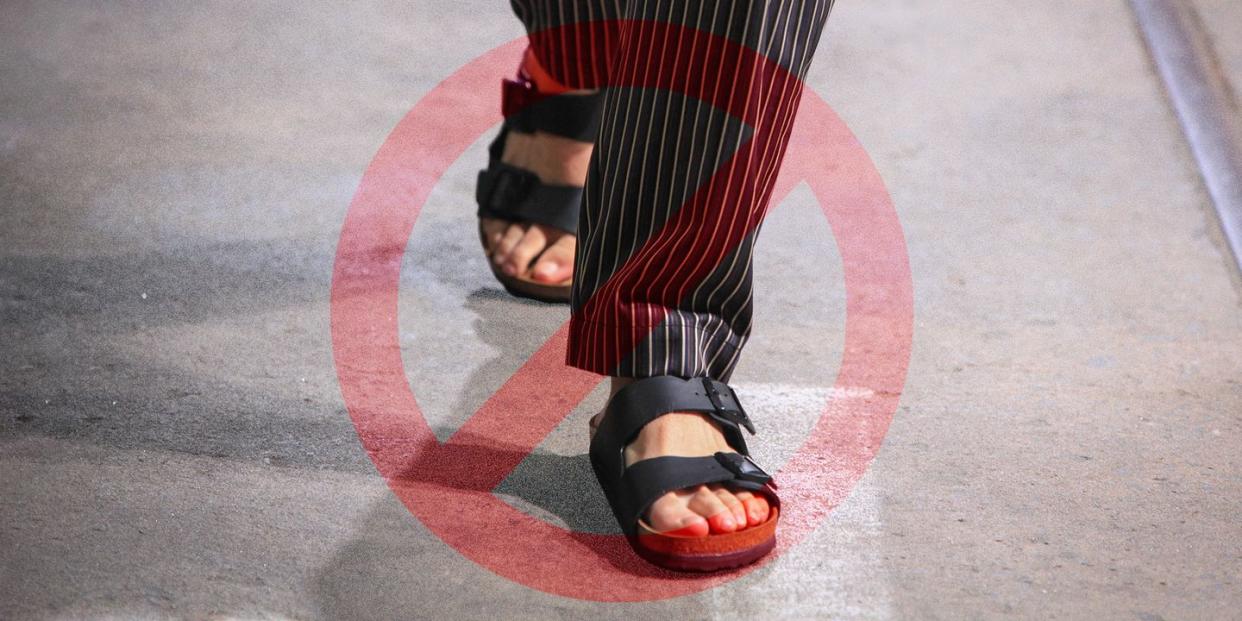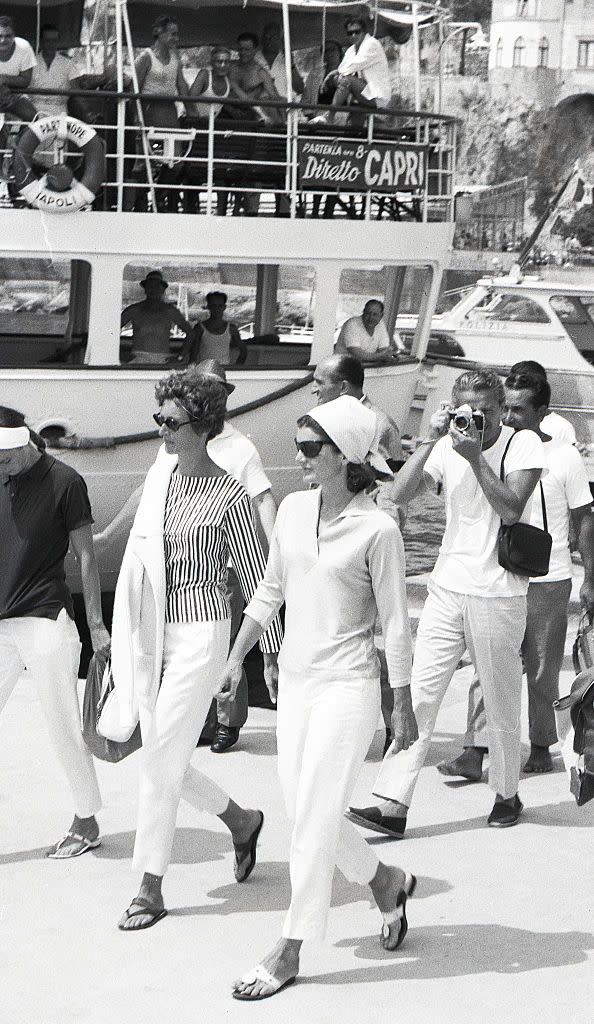Not Even LVMH Can Convince Me to Wear Birkenstocks

In many ways it was inevitable. Sheltered at home with no reason to leave, save for an afternoon walk and maybe the occasional alfresco meet-up with friends, of course function would rule out over form. It was out with the high heels, the handbags (though their absence was short-lived), anything that zips. In with the canvas totes, the sweats, the Birkenstocks.
I will happily succumb to athleisure. But Birkenstocks? I will never be caught dead in them. (Confession: I did buy a pair in high school, wore them once, realized the terrible mistake I had made, and never put them on again.)
Obviously, the popularity of Birkenstocks isn't a novel concept, or even unique to the pandemic, though its circumstances have certainly contributed to their resurgence. They are nothing if not perseverant, a fact that doesn't bode well for haters like me (the family-owned company is older than America—Birkenstock was founded in 1774).
For years I have passively watched, with mild annoyance, at the sandals' constant emergence and ubiquity. After their omnipresence last year, I was hoping that by summer 2021 the trend would return to hibernation once more, what with vaccine news being so promising and the general feeling—confirmed by the recent Fall 2021 shows—that perhaps it's time for us all to put a bit of effort into dressing up again.

But alas, recent news suggest otherwise. First came the "Birkinstock," an ironic statement on collaboration culture by a Brooklyn-based collective known as MSCHF. They had cut up Birkin bags and used the scraps to strap up Birkenstock soles. Neither brand participated in the creation of the resulting shoes, which come with a $76,000 price tag. MSCHF is no stranger to such gimmicks veiled as social commentary: in 2019 they created the "Jesus Shoes," Nike Air Max sneakers filled with holy water that retailed for $1,425 and ballooned up to $4,000 on the resale market.
Then, Birkenstock announced that it had sold a majority stake to a private equity firm backed by LVMH, valuing the company at $4.85 billion. Even LVMH's billionaire boss Bernard Arnault and his family investment fund were getting in on the deal. In other words, on top of already having been validated by A-list celebrities and the fashion milieu—not to mention the clout afforded by its collaborations with the likes of Valentino, Proenza Schouler, and Rick Owens—Birkenstock had been officially legitimized by the largest and most powerful arbiter of luxury consumption in the world. The upside for LVMH? Appealing to a broader, younger audience. But is it actually good investment? According to one financial analyst, not really. "It's a seasonal brand, meaning sales potential is limited to half of the year," he says. "It caters to such a niche, specific target—its total addressable market is too small."
All this is to say that not even a conglomerate like LVMH can turn me around to Birkenstocks. They are unattractive, unflattering, and take the laissez-faire approach just one step too far, veering into laziness. Why bookend a perfectly put-together outfit with a pair of clunky, brown shoes? If it's the ease of a slip-on you're after, why not a pair of Hermès Oran sandals? Or even Jack Rogers, a la Jackie?

Well, they are really comfortable, the zealots will declare, and I have no grounds for objection there. For nearly 250 years the company's mission statement has been to create shoes with adequate support using their signature quadruple layer footbed of jute, cork, and suede. But I'm someone who can walk for miles in my minimalist Canfora sandals—maybe this will add up to some karmic orthopedic reckoning later in life but when that time comes, I will resort to more visually savory options.
They have a democratic appeal, might be another argument. That is relatively true. Birkenstocks do not discriminate—they are a beacon of liberalism, for better or worse (see: Howard Dean and his "Birkenstock liberals"), accessible for everyone from Bernie supporters to the Kardashians. But with a starting price point of $100, can they really be considered the everyman's shoe? (The Valentino collaboration will set you back $510.)
At the end of the day, my strong objection to Birkenstocks is simply stylistic. And this is really all a very meandering way of saying: how about skipping the Birks in favor of these instead?
You Might Also Like

